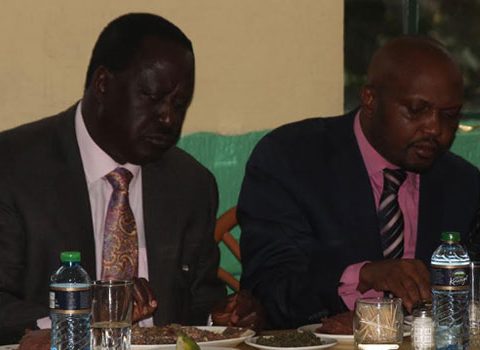Eid ul Fitr marks the end of the Holy Month of Ramadan and the beginning of Shawwal, the tenth Islamic month.
On Eid ul Fitr, Muslims thank Allah for the Holy Qur’an. The sacred book of the Muslims was revealed to Prophet Muhammad on Laylat al-Qadr, one of the odd-numbered nights during the last ten days of Ramadan.

Eid Ul Fitr is significant because it marks the competition of a month-long fast from dusk to dawn. Eid is one of the most important festivals in the Islamic religion, which is celebrated around the world with great happiness and joy.
Eid ul Fitr is a three-day-long festival and is known as the ‘Lesser’ and ‘Smaller’ Eid when compared to Eid al-Adha, which is four-day-long and is known as Greater Eid. The Eid ul-Fitr festival is to be celebrated on April 21 or April 22 depending on the region.

Eid ul Fitr celebrations in Kenya.
On April 20, 2023, deputy chief Kadhi Sukyan Hassan Omar confirmed that Friday, April 21 will be Eid ul-Fitr.
Speaking to the media on Thursday evening at Chief Kadhi’s office in Upper Hill Nairobi, Omar cited the sighting of the moon in parts of Mandera and Wajir counties.
We would like to notify Muslims that tomorrow, Friday, will be the first date of the month of Shawwal.”
Said Sukyan Omar.
Hours before this announcement by Hassan Omar, the Muslim faithful in Kenya were confused following controversy over the dates as to when the fasting period wraps up.

Different Muslim scholars and notable Muslim leaders had given different views on a gazette notice issued by Interior Cabinet Secretary Kithure Kindiki, with some opposing it harshly.
Islamically, Ramadan ends on the sighting of the new moon, which marks the beginning of the next Islamic month, Shawwal, hence, Idd is celebrated on the first day of Shawwal.
Traditionally, the sighting of the new moon (crescent moon) is done by trustworthy scholars who are identified as “moon sighters”. They are tasked with sighting the moon on the 29th day of the current Islamic month.
Read: How Can Kenya’s Economy Be Compared? Under 2 Former Presidents
21st April is a holiday- Interior CS.
As per the Kenyan government calendar, Eid was to be observed on April 21, 2023. Interior Cabinet Secretary Kithure Kindiki, on April 19, therefore, gazetted Friday as a public holiday to allow the Muslim faithful to observe the Eid ul-Fitr.

It is notified for the general information of the public that the Cabinet Secretary for Interior and National Administration in exercise of the powers conferred by section 2(1) of the Public Holidays Act, I declare Friday, 21st April 2023, shall be a public holiday to mark Idd ul-Fitr.”
Kindiki said.
The same was confirmed through a letter written by Deputy Chief Kadhi Sukyan Hassan Omar.
Thursday, April 20 2023, shall be the 29th day of this years Holy Month of Ramadan. And in the evening of 29th day of Ramadan, the sunnah is that the new moon is searched, and upon sighting, the Eid is performed in the following day.”
A statement read in part of the letter.
History of Eid ul Fitr.
The history of Eid ul-Fitr dates back to the time of Prophet Muhammad, who founded the Islamic religion in the 17th century. According to Islamic tradition, the prophet received the first revelation of the Qur’an during the month of Ramadan, which is why the month is considered sacred.
The end of Ramadan is marked by the celebration of Eid ul-Fitr, which means “festival of breaking the fast” also signified by the end of fasting from dawn to dusk throughout Ramadan and the opening of Shawwal month.
How is Eid ul Fitr festival celebrated?
The celebration of Eid ul Fitr is largely the same around the world. As soon as the crescent moon has been observed, praises to the Almighty are heard echoing throughout Masjids, houses, markets, and everywhere. The celebrations begin early in the morning with special prayers known as Eid prayers.
Muslims dress in new or clean clothes, offer charity to the poor, and visit relatives and friends. This is a day to express joy and gratitude.
Read: CS Kindiki Declares Friday a Public Holiday to Celebrate Idd-ul-Fitr
Eid is a time to forgive others for the wrongs they have done to them, intentionally or by mistake, just as they themselves hope that Allah forgives their sins in His infinite mercy during Ramadan.





